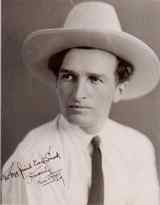
I like horses a lot. I was one of those girls that constantly drew horses, grabbed every opportunity to go riding, and read all of Marguerite Henry's books (including King of the Wind) before I was 12. My daughter is taking riding lessons right now, and it makes me want to go again, too. I love feeding the horses treats and the smell of the stable, and when I saw The Hearts of Horses by Molly Gloss recommended at my local Border's, I checked it out of the library and enjoyed every minute of the story of a horse breaker in pre-World War I Montana.
So I had high hopes for Smoky, especially after reading Will James' preface:
To my way of thinking there's something wrong, or missing, with any person who hasn't got a soft spot in their heart for an animal of some kind. With most folks the dog stands highest as man's friend, then comes the horse, with others the cat is liked best as a pet, or a monkey is fussed over; but whatever kind of animal it is a person likes, it's all hunkydory so long as there's a place in the heart for one or a few of them (pg. v).I have a pretty high tolerance for old fashioned writing styles, including lots of slang and dialog (one of the things I liked most in The Dark Frigate). Despite this, I had a really hard time getting through Smoky, the Cow Horse. It seemed so long, and although experiencing the story from the horse's point of view was interesting at first, very little happened for much of the book.
One of the things that did strike me was that soon after Smoky's first experience with humans, when he is branded, he is thereafter referred to "the mouse colored gelding". (Field mouse? House mouse? Turns out it must be a house mouse, because the color illustrations - which are pretty nice in my library's 1929 edition, anyway, as shown above - portray him as dark gray). Smoky must have been gelded when he was branded, but it wasn't mentioned, and the omission bothered me a bit. I guess that castration wasn't an appropriate topic for a children's book in 1926.
Will James' language did start to wear on me as the story plodded along, too. Crethure (creature) and eddication (education) particularly got on my nerves, and they appear repeatedly. I didn't mind the cayotes so much, and I enjoyed the use of kinky as a synonym for wild (just as gay was different when Gay-Neck was written). Those kinky calves sure ran wild on the range.
I loved a few of the old terms that James pulls out: gazabo (just some guy), "ganted up" (not sure about this, but it happens after a horse has been ridden too hard and not watered), and beezer (nose) were my favorites.
But why do half the chapters have quotation marks around them? There's "The Squeak of Leather" and the next chapter is Smokey Shows His Feelings. Weird.
The racism that I'd heard about didn't pop up until the last half of the book, and it is pretty notable that every bad man in the book is dark "complected". I didn't realize that "the vegetable man" in the last chapter was not fair-skinned until I read this shocking remark from the sheriff to Clint, the cowboy who breaks Smoky and then rescues him from an abusive owner:
"Say, cowboy," he finally says, "don't scatter that hombre's remains too much; you know we got to keep record of that kind the same as if it was a white man, and I don't want to be looking all over the streets to find out who he was (p. 257)."Anyway, I'm glad I read Smoky - although I think much of that is because reading about Will James is utterly fascinating. You should see Amanda's review for more about him, and then you might want to check out a couple of recent museum exhibitions and articles on his work:
 Cattle-Rustler Turned Author-Artist Featured at University
Cattle-Rustler Turned Author-Artist Featured at UniversityPlains-Panhandle Historical Museum exhibit
Canadian Cowboy Country magazine
Even as a horse lover, though, I don't recommend Smoky the Cowhorse. Those first one hundred pages were just too long.




1 comment:
Great review, Sandy! Thanks for sharing the illustration and the links.
Post a Comment